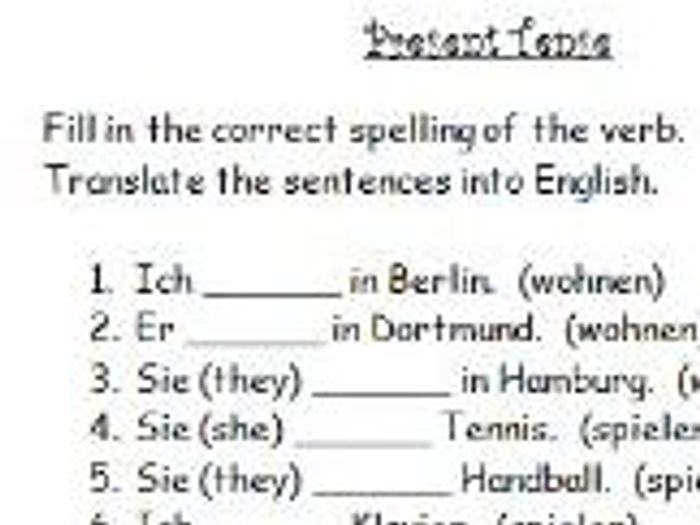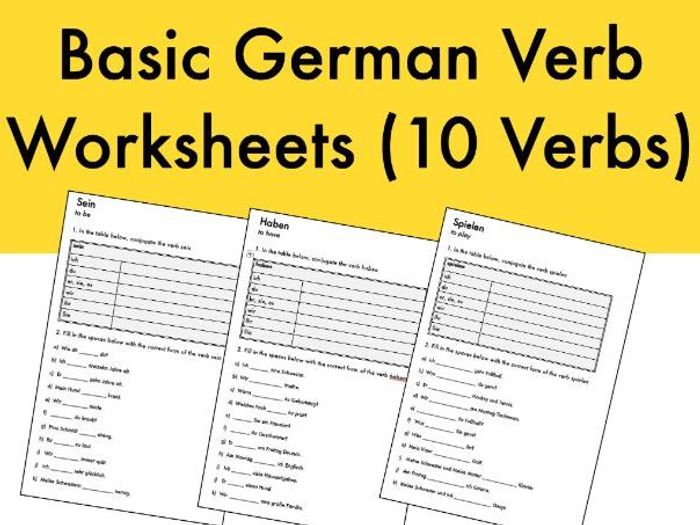

That means that learning goals are discussed with you and based on your level of knowledge. During the Goethe Institute "Learn to teach German" course I was able to give individual language lessons and actively support the examination preparation for the Goethe certificate.

To find out more about teaching languages, I decided on further training at the Goethe Institute and completed it. See some examples in the table below:Īfter training as a pastry chef and studying business administration, I traveled a lot and discovered my interest in languages. The double infinitive is therefore always used with a past form of a modal verb. But with the past participle, we always use the double infinitive. The verbs you can find in the table above, can be used alone or in a verb group. The double infinitive with the past participle With verbs of motion (which don't hold an infinitive with 'zu'):

When I lived in Italy, we would often eat in the restaurant next to my flat.We can use 'will' and 'would' to talk about habits or things we usually do, or did in the past. We also use modal verbs to say something is not allowed. We can use verbs such as 'can', 'could' and 'may' to ask for and give permission. We can use verbs such as 'must' or 'should' to say when something is necessary or unnecessary, or to give advice.Ĭlick here to find out more about obligation Permission My grandfather could play golf very well.Ĭlick here to find out more about ability.We use 'can' and 'could' to talk about a skill or ability. £200 for two cups of coffee!Ĭlick here to find out more about probability. It's snowing, so it must be very cold outside.We often call these 'modals of deduction' or 'speculation' or 'certainty' or 'probability'. Probability:įirst, they can be used when we want to say how sure we are that something happened / is happening / will happen. Here's a list of the modal verbs in English: canġ: They don't use an 's' for the third person singular.Ģ: They make questions by inversion ('she can go' becomes 'can she go?').ģ: They are followed directly by the infinitive of another verb (without 'to'). Click here for all the exercises about modal verbs


 0 kommentar(er)
0 kommentar(er)
